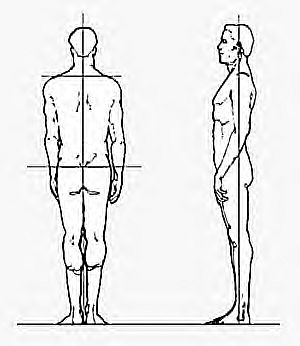Modern Pilates classes
Pilates One To One Assessments – Postural Analysis explained
07/06/16

Any Pilates instructor worth their salt will perform a postural analysis with a client, usually via a one-to-one, before allowing a client to join a class.
The following principles underpin the value of the postural analysis:
- The posture that you begin the movement with will affect the posture you move with.
- The analysis will indicate which areas a client should focus on in Pilates exercises.
- Good posture limits the amount of wear and tear on your joints.
- Posture is about awareness – one of the main reasons people have poor posture is because they are not aware of their own body and proprioception (a sense of how one’s body moves).
At our Blizard Physiotherapy & Sports Performance clinic, we insist on a one-to-one assessment with our Modern Pilates Practitioner, Celine Blizard, before clients are able to attend classes.
The session is mutually beneficial as it allows the client to:
- Meet their instructor
- Understand the guiding principles of Pilates
- Spend some time practising those all important static good posture positions
While for the Pilates Practitioner, knowledge and understanding of the client is gained through a variety of methods.
So what exactly happens in a one to one assessment?
Initially, Celine will talk though your pre-completed registration form containing questions around your health and wellbeing, your reasons for wanting to participate in Pilates, as well as some important documents:
- Physical Activity Readiness Questionnaire (PAR-Q)
- Informed Consent Form
It is also a great opportunity for you to ask any questions, and for Celine to enthuse how wonderful Pilates is!
Once the paperwork is complete, the postural analysis part of the session will begin with photographs of you being taken from the front, back and each side, to allow Celine to review your posture in more detail after the session.

Celine explains: “The photographs are best shot with a client in underwear, as any postural imbalances are much more visible. Of course, not everyone is comfortable in their underwear, and that’s absolutely fine. I can perform a postural assessment with a client fully clothed instead, it just means my analysis will be a little bit more ‘hands on’”.
After the photographs are taken, Celine makes some brief notes on your posture, looking out for any imbalances in your standard posture line (vertical and horizontal), any weight-bearing in your body, the curvature of your spine, the position of your pelvis, shoulder and head, and any rotation in your trunk and shoulders.
As well as taking notes, Celine will get ‘hands on’, feeling around your pelvis, hips and shoulders to ascertain any imbalances not clearly visible. It’s really important for her to identify any postural anomalies before classes start, so she is able to tailor exercises for your particular postural needs.
The final part of the one-to-one assessment is a practical session on the static good posture positions of standing, all fours, lying on our back and lying on our front. There are of course other static positions from which we start exercising, but we can transfer the skills we’ve learnt to these positions as the classes progress.
Celine is well aware that there’s a lot to take in in this session, adding: “Many newcomers [to Pilates] don’t realise how in depth Pilates is as an exercise form, but they shouldn’t worry at all. I spend a great deal of time in my classes reminding clients not only what they should be doing, but more importantly what they should be feeling if they are doing it right!” This practical session also includes an introduction, via the static good posture positions, to the principal deep core stabilising muscles we use throughout our Pilates classes, such as our pelvic floor, our transversus abdominis and our diaphragm (via breathing).
Before the assessment finishes, remember to feel free to ask any questions, and for Celine to explain what happens next.
All clients will receive an information pack after the initial assessment, along with some pointers on what to work on before you return for your class.
One-to-one assessments last approximately 40 minutes, are priced at £20, and can be booked through our clinic reception when a class space becomes available.
If you would like to join our Pilates waiting list please email your name, telephone number and preferred class time (from the list below) to info@blizardphysiotherapy.co.uk. One of our team of receptionists will contact you when a class space becomes available.
Class times
Monday - 7.15am and 8.00am
Tuesday - 4.30pm, 5.15pm, 6.30pm and 7.15pm
Wednesday - 7.30am, 8.15am, 9.30am and 10.15am
Thursday - 7.30am, 8.15am, 9.30am and 10.15am


